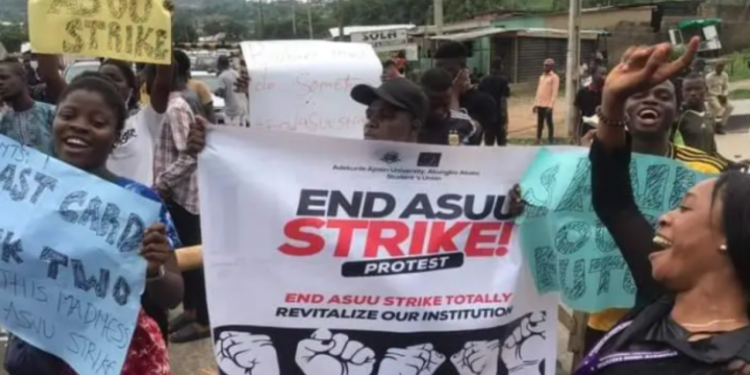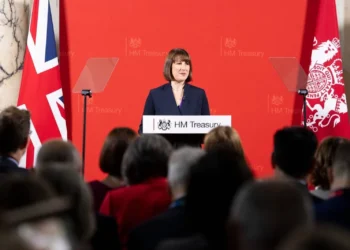ASUU STRIKE: There is hope that the industrial action embarked upon by the university lecturers in the nation`s public universities may likely be called of soon, as the National Executive Council (NEC) of the union meets this Sunday.
BASIC FACTS
- The Academic Staff Union of Universities (ASUU) have been on strike for about 6 months now and public universities have remained closed.
- The strike action was following the continued failure of the federal government to honour their previous negotiated agreements, which ASUU also called for renegotiations.
- ASUU has been on strike with NASU and SSANU which now called off their own strike and set to resume this Wednesday, after which ASUU have now set a meeting to decide on their own move.
WHAT WE KNOW
The National Executive Council of the Academic Staff Union of Universities (ASUU), which is currently on strike will convene on Sunday, August 28, 2022, to decide on whether to stop or further prolong the industrial action, Clariform has learnt.
According to a credible source among the NEC members, which a Clariform correspondent reached out to, the union’s national office at the University of Abuja will host the meeting.
Our source hinted that in the meeting, the Council will decide on the next move regarding the strike action based on information from the various state congresses of ASUU.
FLASHBACK
Clariform recalls that ASUU had on Monday, February 14, 2022, embarked on a strike.
ASUU had demanded that their 2009 agreement with the Federal government is renegotiated and that funds for university revitalization be released.
The also demanded that the University Transparency Accountability System be implemented for the payment of university lecturers’ salaries and benefits, and that earned allowances be released
The further also demanded that the white paper report of the visitation panels to universities be made public.
Other associations such as the Senior Staff Association of Nigerian Universities, Non-Academic Staff Union of Allied and Educational Institutions, and National Association of Academic Technologists later followed suit, shutting down public universities nationwide.
Recall that we earlier reported that the minister of education on Thursday told State House correspondents that the government would not pay the lecturers for the period of the strike.
Other university-based unions, including the Senior Staff Association of Nigerian Universities, the Non-Academic Staff Union of Universities, and other affiliated educational institutions, went on strike shortly after the ASUU strike began to press their demands.
Clarifrom recalls that the government had formed a negotiation team to explore talks with the unions to put a stop to the strike, and it was headed by Nimi Briggs, the pro-chancellor of the Federal University of Lokoja.
The government and ASUU’s talks have deadlocked while SSANU, NASU, and NAAT have called off their strikes.
NOTABLE QUOTE
Our source said, “The NEC meeting will hold on August 28, the four weeks ultimatum that we gave is expiring that same day. We will be making our decisions based on the results of the state congresses.”
“The NEC has to depend on the result of the congresses. The zones have held their congresses; the branch chairmen will also talk to their members and they will get feedback which will be transmitted to the NEC.”
When asked if the upcoming NEC meeting means that ASUU will be calling off the strike action, Dr. Gbolahan Bolarin, the Chairman of ASUU at the Federal University of Technology in Minna, said “Yes, Sunday.”
TAKEAWAY
The lingering debacle between the lecturers and the federal government have almost completely crippled what is left of the university system in Nigeria, which has never really been anything to celebrate.
Clariform has been following developments around the industrial action by ASUU for over time and can report that the lecturers are making a legitimate demand for the uplifting of the universities and educational system in the country.
Level of education in Nigeria is too poor that most Nigerians have resorted to trooping out of the country in their numbers in search of quality education, especially at the tertiary level.
It is so bad that a smaller neighboring country like Ghana has become an academic heaven for Nigerian students looking to better their lives with improved learning environment.
So, one would wonder – with all the resources available in Nigeria, what exactly is Ghana getting right in their educational system that Nigeria has found incapable of doing? Clariform investigation only points to corruption in governance and insincerity of government.












